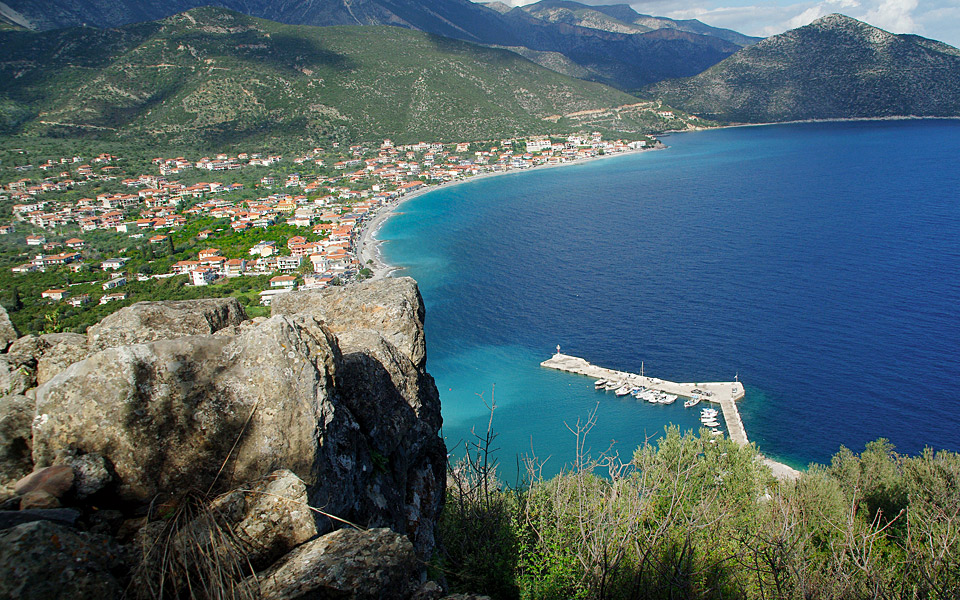“ Living closer to real things. ”
James Foot is a Londoner who moved to Kyparissi in Laconia 22 years ago, first living in a farmhouse for a decade before buying two huts in 2001, which he converted and extended, adding a painting studio and a terrace. Setting up home in Kyparissi has rewarded him not only by inspiring him creatively – his works centre on dazzling seascapes, empty village squares, sun-blanched stairs, colorful farm animals – but also by bolstering his bond with nature, the Greek people and their culture.
“Here I’m living a bit closer to real things, eating and drinking foods of which I know the provenance, especially as I grow my own vegetables and herbs.”
Instead of building his Greek education from books, he has learned the language, local customs and history by interacting with his neighbors and friends, all the time creating deep bonds. When he first arrived he was very much viewed as the “mad artist foreigner” who was met with stony silence whenever he visited the local coffee shop, but he “brazenly persisted.” Foot’s life in Kyparissi has also inspired him to write a murder mystery set in the village, soon to be published.
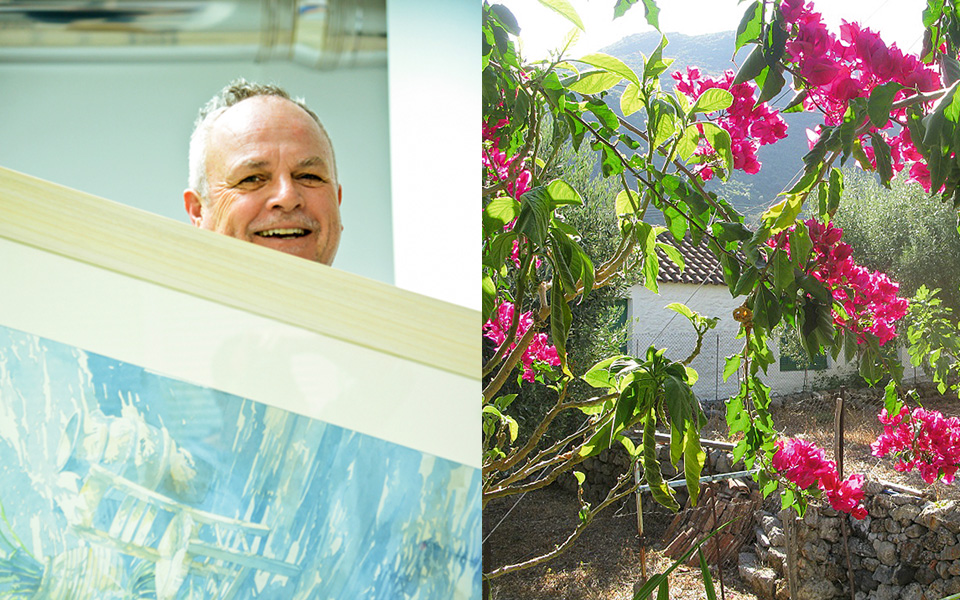
“ A completely different perspective. ”
An accomplished Welsh-English cellist and father of two, Christopher Humphrys moved to Greece to become one of the first members of the by now multi-awarded Athens Concert Hall’s “Camerata Friends of Music Orchestra” some 20 years ago, and over the last few years has also been reporting on the Greek crisis-hit reality for leading British media. His writing career was born with the book Blue Skies and Black Olives, which he co-wrote with his father, the famous BBC journalist John Humphrys, about the somewhat herculean task – with tragicomic consequences – of building a home near Methana, a region he was already well familiar with: “I have been making yearly pilgrimages to Epidaurus since 1993,” he says. “My orchestra played the first concert in 2000 years in the small theater at Epidaurus, which was a magical experience.”
What Humphrys most enjoys about his Methana house, where he heads whenever he has a break, is “the change of pace” and socializing with locals, who offer him a completely different perspective than that held by stressed Athenians. “If I pop to the local shop to get some bread, I might end up having a coffee (ok, a beer) with the owner and return two hours later.”
Humphrys is also profoundly moved by the natural splendor of the region. “The Methana peninsula is a constant source of surprise and wonder. Over 30 active volcanoes, 100 types of indigenous orchid and lush green valleys that look prehistoric! I half expect to come across small dinosaurs peeking out from behind the huge lava boulders. In most countries, Methana would be designated a national park. In the Peloponnese it’s just one of many fabulous places.”
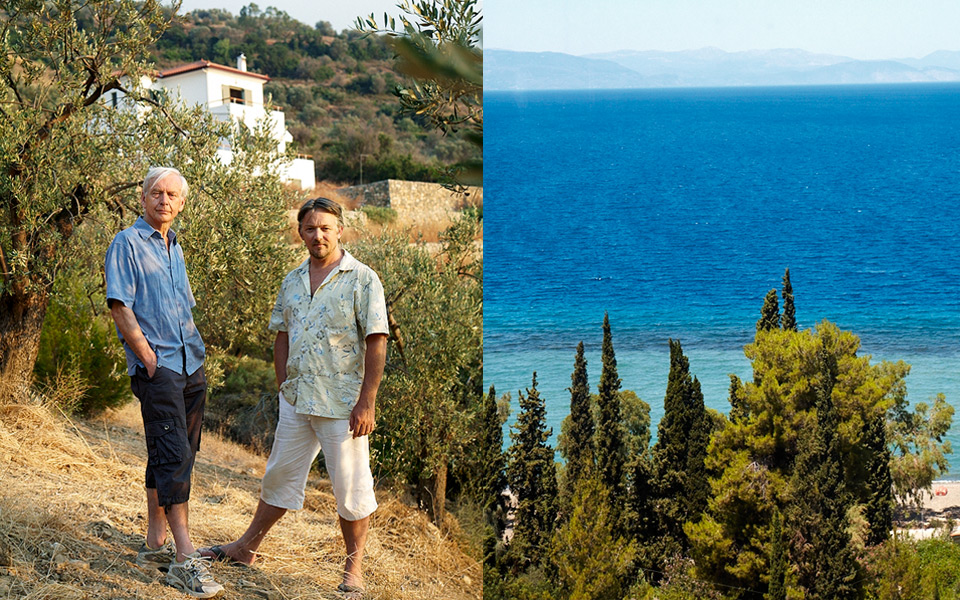
“ I feel like I have come home ”
Greece has been Wendy Copage’s second home for over 30 years, but 10 years ago she quit her publishing job in Athens and settled in Tyros, Arcadia, where she has been living year-round ever since. She bought a house and has kept it as authentic as possible while making renovations. She also created Greece On Foot, a guide to walking holidays: “Having traveled the whole of Greece for many years, this was my paradise. It has everything in terms of unspoiled nature… and I feel honored to be accepted as part of the local community.” It took Copage a long time to gain a deep understanding of the landscapes she so freely explores today, as, unlike her boots, the region
was clearly not made for walking. “I just had to set off and find paths by trial and error,” she says. “When I asked locals for directions, the conversation tended to go something like this:
– I want to go to Melana from here – where does the path start?
– You can drive!
– No, I want to walk.
– Ah, then set off next to Kostas’ water tank.
– Which Kostas?
– Kostas who had the donkey that died on the way to the village festival… never mind, just get to the two olive trees that belong to the monastery.
– How will I know which olives?
(Silence).
– So anyway, how long will it take me?
– One hour. Six hours. You can’t go. You can’t go alone!
Now a member of the local walking group committee, Copage also volunteers to clear old paths. “I feel I’ve come home here,” she says. “Walking the mountain paths with a few goatherds, sharing old stories as we watch the sunrise or sunset together, is a magical link to a valuable past that has been totally lost in the UK.”
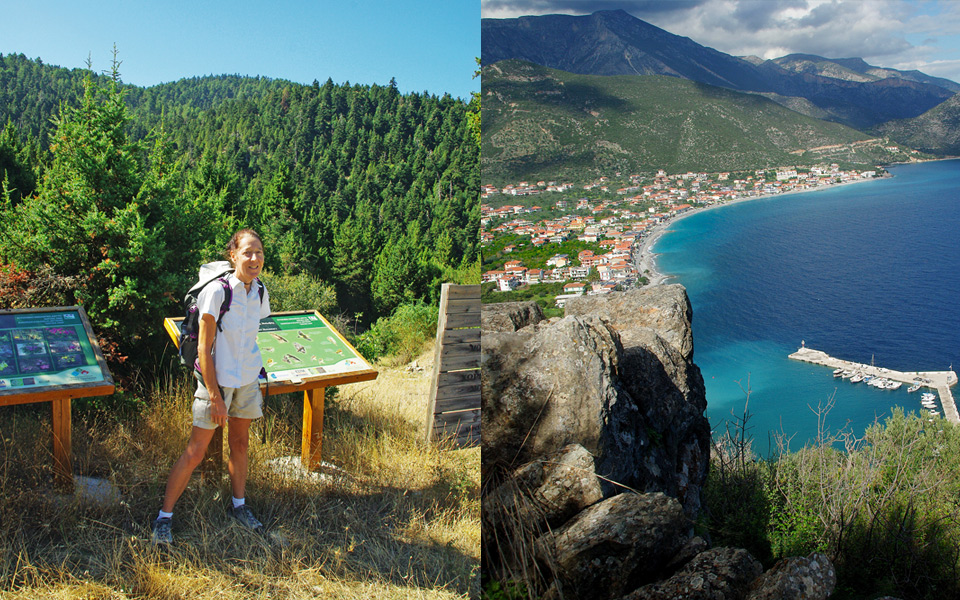
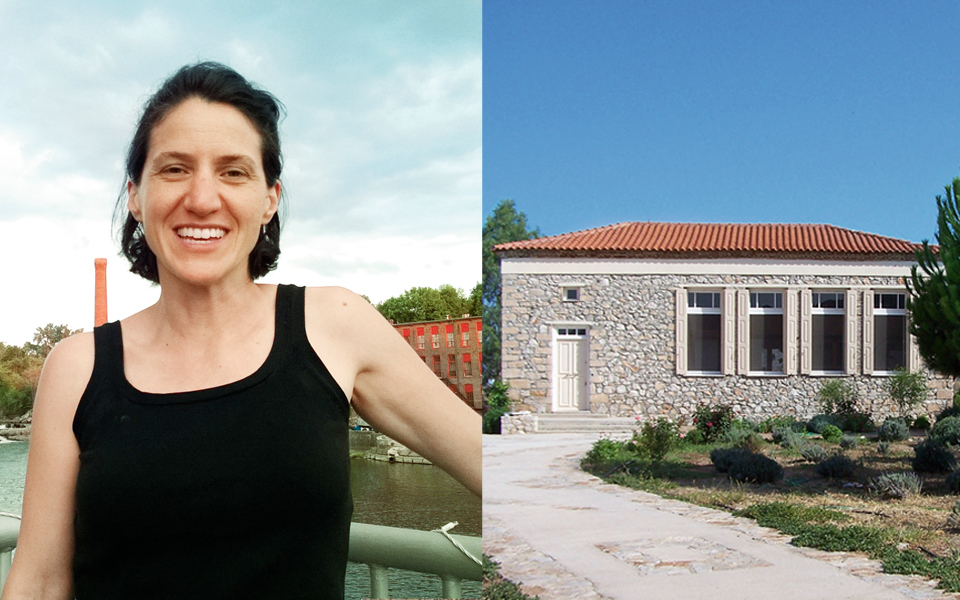
“ There is nothing nicer than stepping out and harvesting whatever herb or fruits are in the yard ”
For documentary filmmaker, writer and journalist Angelike Contis, whose parents are first-generation Americans (her mother from Chios and father from the Arcadian village of Vlachokerasia, the subject of her documentary 24 Hours In the Village), buying a 1932 schoolhouse in Iria was a way of having a place in the homeland for their annual “migration.” The reconstruction process was a family project, headed by her architect sister Christina. The home was where Contis held her wedding party and where new Contis generations are developing a vibrant connection to Greece.
“Iria is the land of artichokes, giving it all a feel of a Paleolithic era,” she says. “The sea, its scent and presence are very strong. For us, it’s always a chance to take a breather, to relax, to spend meaningful time with friends, cooking, drinking wine… When it comes to eating, there is nothing nicer than stepping out and harvesting whatever herbs or fruits are in the yard. The rosemary is amazing. The pomegranates, grapes, olives, figs and the small, sweet oranges.”
Living in New England, she often fantasizes about escaping to Iria, but unlike her parents, who stay there every summer, she only gets to visit every few years due to her busy job heading a local Vermont TV station.
Having developed a profound respect for the place, she regrets that Iria is not more recognized for its attributes by locals: “Iria has an ancient past that is palpable, but sadly not exploited by the town. I always hoped they could put up a sign or something pointing to the site of the ancient shipwreck, but it hasn’t happened…”

